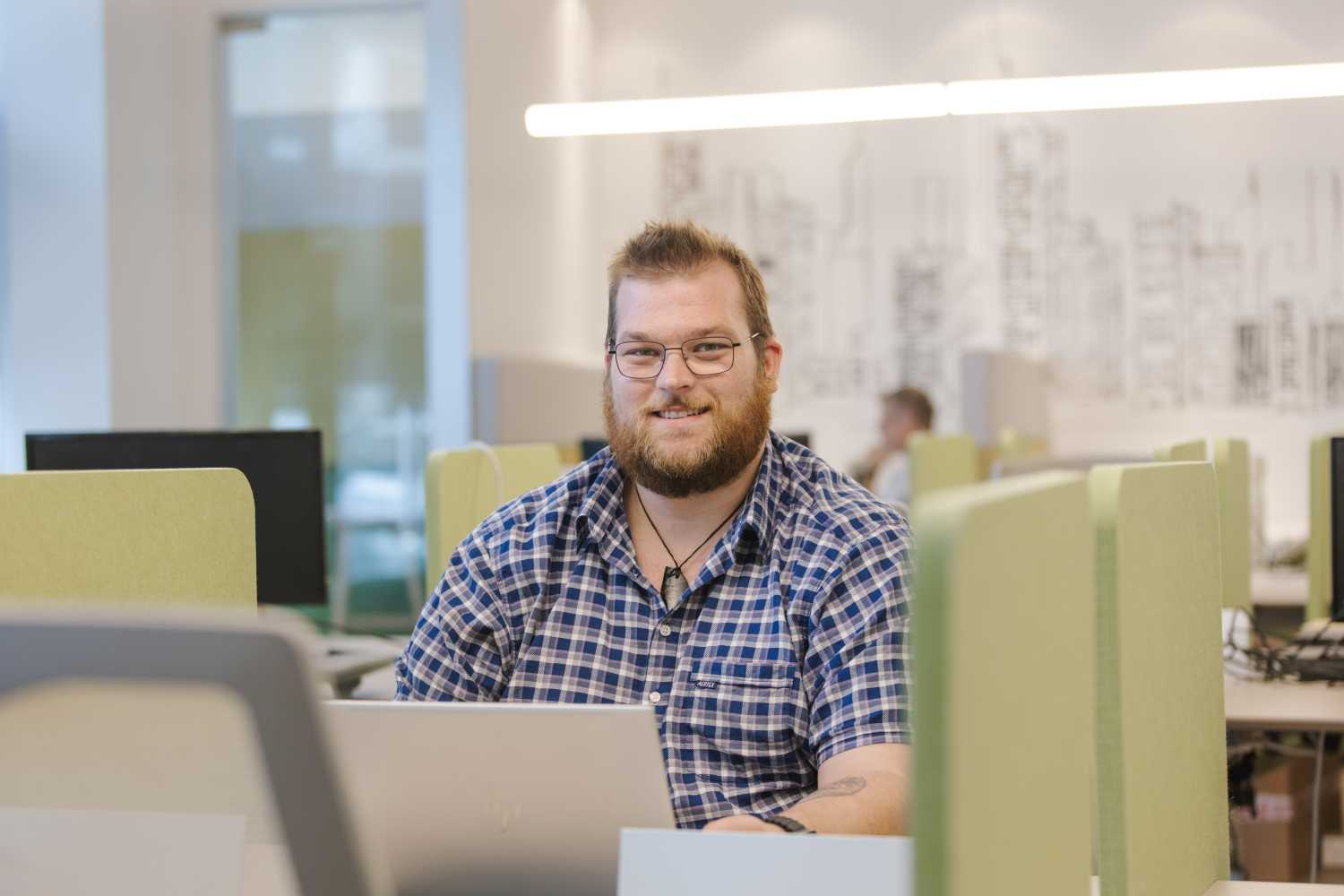
Lucy
How would you describe your role?
My role is to help anyone who needs it, but my main focus is supporting the Coordinators in our Service Team. I work to enable their teams to deliver exceptional service to our clients. Whether it’s solving roadblocks, improving processes, or simply lending a hand, my job revolves around making things better for others.
A big part of my role involves constantly looking for ways we can evolve and improve. I’m not afraid to stick my nose into areas where it might not belong if it means I can help.
What are your main responsibilities?
• Supporting our Coordinators to lead their technical teams and deliver exceptional client service.
• Identifying opportunities for process improvements.
• Assisting with onboarding new clients and ensuring a smooth transition into support.
What are the most important skills in your role?
Curiosity fuels my desire to constantly learn and improve, while helpfulness keeps me ready to jump in and get the job done. Balancing organisation with flexibility helps me stay structured yet adaptable. Lastly, having a solid understanding of technology allows me to contribute meaningfully without needing to be hands-on technical.
What does a typical day look like for you?
I’m usually at my desk by 7 or 7:30 am, using the quiet early hours for focused work or handling anything urgent from the day before.
The rest of the day is about teamwork. I join touchpoints with our Coordinators, focusing on client satisfaction, team development, and unblocking any challenges. Some days, I also meet with new clients, wearing my “Onboarding” hat to welcome them into our support system.
What kind of tasks do you handle on a daily/weekly/monthly basis?
Daily and weekly tasks include reporting on key data, assisting Coordinators by providing guidance or resolving blockers, and collaborating with Tom to keep our project systems running smoothly. On a monthly basis I support our Finance team with the invoicing cycle for all Service Team activity. Throughout it all, my focus remains on supporting our Coordinators and teams to deliver exceptional service.
How did you get started in your role and/or IT?
After finishing university with a BA and no clear direction, a family member referred me to a non-technical Sales Support role at The I.T. Team. While I’ve always been interested in IT, I didn’t have hands-on technical experience, so this role was the perfect opportunity to get involved in the industry in a way that matched my skills.
Over the years, I’ve been able to stay connected to the tech world without having to dive into the technical details—just the right balance for me.
What do you enjoy most about your role?
The people. My immediate team is fantastic—they’re a dedicated, positive group who tackle challenges with a collaborative spirit. We’re always putting our heads together to find solutions, and there’s no drama, just teamwork.
The wider team is equally great. Everyone gets along well, and we’ve built a supportive, enjoyable work environment.
Are there any challenges in your role?
Absolutely! The biggest challenge is balancing competing demands. We need to get the day-to-day service right, while also focusing on long-term improvements and resolving issues as they arise.
It can be tough to maintain a consistent focus with so many priorities, but the team and our clients help guide us in the right direction.
What opportunities for career growth exist in your role and/or field?
For me, career growth is about continuing to be useful—whether that’s improving processes, supporting the team, or solving problems that make someone else’s job easier.
Why did you choose to work for The I.T. Team?
This was my first “real” job after university. I had some interest in the IT industry but didn’t have any technical experience, so the role that came up was a great fit. It gave me an opportunity to get involved in an industry I’d always been curious about, and I’m glad I took the chance!





.jpg)








